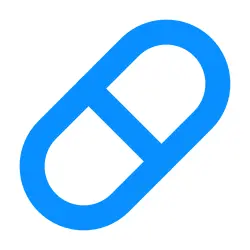Treatments (0)
Advice for Acid Reflux
These are typical signs of acid reflux:
Heartburn is a burning ache or discomfort that can travel up into your neck or up into your abdomen and chest.
Regurgitation: a backflow of sour or bitter-tasting acid into your mouth or throat
These are some more signs of acid reflux disease:
Bloating
Dark, bloody, or vomit that is bloody
Dysphagia, or the feeling that food is trapped in your throat, causes burping
Cramps that won't stop
Nausea
Loss of weight with no apparent cause
Wheezing, a persistent sore throat, a dry cough, or hoarseness
If you get acid reflux symptoms two or more times per week or if medicine doesn't provide long-lasting relief, it's time to visit your clinician. The diagnosis of acid reflux disease is based on symptoms like heartburn, especially if dietary adjustments, antacids, or drugs that block acid diminish these symptoms.
Your clinician may request tests to confirm a diagnosis and look for further issues if these steps don't work or if you experience frequent or severe symptoms. You might require one or more tests like these:
A barium swallow (esophagram) can detect ulcers or esophageal constriction. An X-ray is initially taken after you ingest a solution that makes structures visible.
Esophageal manometry can measure the lower esophageal sphincter's movement and function.
You can check for acid in your oesophagus with pH monitoring. To assess the quantity of acid in your oesophagus, the doctor places a device inside of it and keeps it there for one to two days.
An endoscopy might detect issues with your stomach or oesophagus. A long, flexible, illuminated tube with a camera is inserted down your throat as part of this procedure. To make you more comfortable, the doctor will first spray a sedative and anaesthetic down your throat.
A biopsy may be performed during endoscopy to examine tissue samples for infection or anomalies under a microscope.
Proton pump inhibitors (PPIs) and or H2 blockers, are types of medication that lowers the amount of acid your stomach produces.
PPIs consist of:
Omeprazole - is typically taken once daily, first thing in the morning. You can take it with or without meals because it won't have an impact on your stomach.
Lansoprazole - is typically used once daily, first thing in the morning. Take one dose of lansoprazole in the morning and one in the evening if you take it twice a day. Take lansoprazole at least 30 minutes before a meal or snack for optimal results. This is because eating prevents some lansoprazole from entering your system.
Depending on how severe your acid reflux is, you'll often need to take this kind of medication for 4 or 8 weeks.
H2 blockers - Famotidine works by obstructing the stomach's histamine 2 (H2) receptor. This receptor aids in your stomach's acid secretion. This medication reduces the quantity of stomach acid secreted by inhibiting this receptor.
Dose for adults (ages 18 years and older)
40 mg administered once day at bedtime for up to eight weeks is the short-term dosage. Your dosage may be divided into 20 mg taken twice daily.
Long-term dosage: 20 milligrammes taken at bedtime each day.
Here are 10 suggestions for reducing the symptoms of acid reflux:
- Obtain and keep a healthy weight.
- Eat numerous, small meals rather than large ones several times throughout the day.
- Reduce fat by consuming fewer full-fat dairy items like sour cream, cheese, and whole milk as well as less butter, oils, salad dressings, gravy, fatty meats, and other high-fat foods.
- During and after your meal, maintain an upright position (either sitting or standing).
- Go to bed at least three hours after eating.
- Avoid wearing clothing that is too tight in the belly area. The acid in your stomach may be forced up into your oesophagus as they crush it.
- Use wooden blocks under the bedposts to raise the bed's head 6 to 8 inches when you're sleeping as extra pillows won't work.
- Give up smoking.
- Acid-reducing drugs may be recommended by your doctor. Make certain you take them as prescribed.
- Eliminate potential trigger foods.
Acid Reflux FAQs (4)
Avoiding the meals and drinks that cause symptoms is one of the best strategies to treat acid reflux illness.
Changes in lifestyle and over-the-counter drugs are frequently sufficient to control acid reflux disease symptoms.
Your doctor may advise surgery if drugs don't totally relieve your acid reflux disease symptoms and the symptoms are significantly impacting your life.
A condition of the stomach termed a hiatal hernia is a typical contributor to acid reflux illness. This happens when the diaphragm, a muscle that separates your stomach from your chest, is moved above the top portion of your stomach. Normally, the diaphragm aids in maintaining stomach acid.


